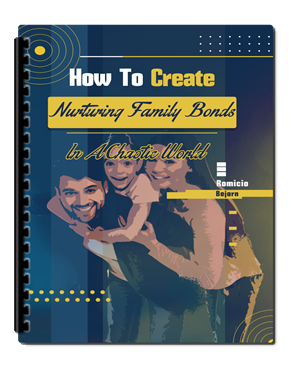Divorce is one of life's most significant transitions, marking the end of an important chapter and the beginning of something new.
While it's natural to feel overwhelmed, lost, or even stuck in a cycle of negativity, it's important to remember that this experience, as difficult as it may seem, can also serve as an opportunity for growth and renewal.
Finding ways to reclaim your happiness and sense of purpose during this period is entirely possible with the right mindset and actions.
Through compassion for yourself and clear steps forward, you can regain control of your emotional well-being and create a brighter, more fulfilling future.
Let's explore actionable ways to help you move through this challenging time and rediscover the joy you deserve.
1)) Seek Professional Support
Seeking professional support during a divorce can be a vital step in reclaiming your sense of stability and happiness.
Professional counselors, therapists, or divorce coaches are trained to provide you with tools and strategies to cope with the overwhelming emotions that often accompany the end of a marriage.
These experts create a safe and non-judgmental space where you can express your feelings, process your grief, and gain clarity about your situation.
Their guidance can help you focus on constructive actions that promote emotional healing and personal growth.
Beyond emotional support, professionals can assist you in developing effective communication skills, especially if children are involved, to ensure a healthier co-parenting dynamic.
By investing in professional help, you are taking an active step towards rebuilding your life with resilience and paving the way for a more positive and fulfilling future.
2)) Focus On Self-Care
Self-care is an important step in navigating the emotional turmoil of divorce and reclaiming a sense of happiness and stability.
Prioritizing your physical and mental well-being can create a foundation for healing and growth during this challenging time.
This might include establishing a daily routine that incorporates exercise to release endorphins, a balanced diet to nourish your body, and mindfulness practices to ease stress and promote clarity.
Taking time to explore new hobbies or revisit old passions can also bring a sense of joy and accomplishment, offering a much-needed distraction from negative thoughts.
Self-care extends to setting boundaries and surrounding yourself with supportive people who uplift and encourage you.
By focusing on your own needs, you can regain confidence, rebuild self-worth, and cultivate a positive mindset, ultimately leading to a happier and more fulfilling life.
3)) Build A Support Network
Building a strong support network is necessary during a divorce to help mitigate feelings of loneliness and despair.
Surrounding yourself with understanding and empathetic individuals, such as close friends, family, or even a therapist, can provide a safe space to process your emotions and share your struggles.
Having people who listen without judgment and offer encouragement can make difficult days more bearable.
Support groups for individuals going through similar experiences can offer a sense of solidarity and practical advice for navigating this challenging period.
Reaching out to others is not a sign of weakness but an acknowledgment that healing is easier when shared.
A solid support network helps foster resilience, boosts emotional recovery, and empowers you to look forward to a brighter and more hopeful future.
4)) Practice Mindfulness
Practicing mindfulness can be a powerful tool for finding peace and stability during the emotional turbulence of divorce.
Mindfulness is the art of cultivating full awareness of the present moment without judgment, allowing you to calmly acknowledge and accept your thoughts, feelings, and surroundings.
By focusing on the here and now, mindfulness helps to break the cycle of rumination over past events or anxiety about the future, which are often common during divorce.
Techniques such as deep breathing, meditation, or simply taking a mindful walk can reduce stress and improve mental clarity, empowering you to handle challenges with greater resilience.
Through consistent practice, mindfulness fosters a sense of self-compassion and gratitude, helping you reconnect with the beauty of small moments and regain control over your emotional well-being.
5)) Stay Physically Active
Staying physically active is one of the most effective ways to combat the emotional toll of divorce.
Exercise not only boosts physical health but also plays a significant role in improving mental and emotional well-being.
Engaging in regular physical activities such as jogging, yoga, dancing, or even brisk walking triggers the release of endorphins, the body's natural feel-good chemicals, which help reduce stress, anxiety, and feelings of sadness.
Beyond the chemical benefits, committing to an exercise routine provides structure to your day, offering a sense of purpose and accomplishment during a tumultuous time.
It can also be an opportunity to rediscover hobbies, join fitness classes, or connect with like-minded individuals, fostering social connections and reducing loneliness.
Whether it's hitting the gym or simply enjoying the outdoors, staying active is a proven way to cultivate positivity, rebuild confidence, and move forward toward a happier, healthier life post-divorce.
6)) Set Personal Goals
Setting personal goals can be an empowering way to regain control and find purpose during the upheaval of divorce.
This period of change, while challenging, also presents an opportunity for self-discovery and growth.
Start by identifying areas of your life where you want to improve, whether it's advancing your career, cultivating new hobbies, improving your physical health, or deepening your relationships.
Breaking these aspirations into smaller, achievable steps can help you stay focused and motivated.
Each milestone you accomplish, no matter how small, will build a sense of accomplishment and self-worth, gradually replacing feelings of misery with optimism and hope.
By channeling your energy into personal development, setting goals helps to shift focus away from the pain and toward creating a fulfilling and happier life for the future.
7)) Limit Negative Interactions
Limiting negative interactions during a divorce is vital for preserving your mental and emotional well-being.
During this challenging time, engaging in frequent conflicts or heated arguments with your former partner can escalate stress and exacerbate feelings of misery.
By setting clear boundaries and minimizing unnecessary communication, you can create a healthier space to focus on your emotional recovery.
Surround yourself with supportive friends and family who offer encouragement, rather than feeding into negativity or unnecessary drama.
Utilizing professional mediators or therapists can also help facilitate discussions more constructively and neutrally, reducing the potential for conflicts to spiral out of control.
Choosing to limit negative interactions is not about avoiding accountability or ignoring difficult conversations but rather about protecting your energy and focusing on building a healthier, more hopeful outlook for the future.
8)) Prioritize Your Well-Being
Focusing on your well-being during a divorce is imperative for navigating such a challenging and emotionally charged life transition.
Prioritizing activities that nurture both your physical and mental health can help you regain a sense of stability and control.
This might involve establishing a regular exercise routine to release stress, exploring mindfulness practices like meditation to calm your mind, or seeking therapy to process your emotions in a supportive setting.
Self-care extends to setting boundaries and distancing yourself from individuals or situations that drain your energy.
By permitting yourself to take time for rest, reflection, and personal growth, you create the foundation for a more positive and fulfilling future.
True well-being comes from recognizing your needs and making intentional choices to honor them, despite the difficulty of the circumstances.
9)) Find Healthy Distractions
Finding healthy distractions can be a powerful way to regain a sense of purpose and joy during the tumultuous period of divorce.
When life feels overwhelming and emotions run high, engaging in activities that capture your attention and offer a positive focus can provide a much-needed reprieve from emotional pain.
Consider exploring hobbies that spark creativity, such as painting, gardening, or writing, as these activities can channel your feelings into something productive and uplifting.
Physical activities like yoga, running, or joining a fitness class not only improve your health but also release endorphins, which can elevate your mood.
Volunteering your time to support causes you care about can offer a sense of connection and fulfillment, reminding you of your value and impact in the world.
Healthy distractions are not about ignoring your emotions but about balancing the difficult moments with opportunities for growth and renewal, allowing you to reconnect with yourself and discover new sources of happiness.
10)) Communicate Effectively
Effective communication is a crucial tool for navigating the emotional challenges of divorce and paving the way to a happier, more balanced life.
During this time, emotions often run high, leading to misunderstandings or conflicts.
However, taking the time to express your feelings honestly and listen empathetically can help foster mutual respect, even amid difficulty.
Clear communication can also play a significant role in co-parenting, ensuring that decisions made are in the best interest of any children involved.
By setting boundaries, practicing active listening, and reframing conversations with a focus on solutions rather than blame, you create an environment where healthy dialogue can thrive.
This not only helps to reduce stress but also allows for a sense of control and cooperation, making the transition smoother for everyone involved.
Adopting effective communication skills empowers you to move forward with confidence and dignity, promoting better relationships in both the short and long term.
11)) Allow Yourself To Heal
Allowing yourself to heal is a necessary step toward reclaiming happiness and emotional stability during and after a divorce.
It’s important to recognize that healing is a process that cannot be rushed, as it involves both acknowledging your pain and working through it compassionately.
Give yourself the time and space to grieve the loss of the relationship, understanding that your emotions—whether sadness, anger, or confusion—are valid and part of the healing process.
Seek supportive environments and connections, such as friends, family, or counselors, who can help you process your experiences and provide perspective.
Engage in self-care activities that nurture your mind and body, such as exercising, journaling, or practicing mindfulness, to build resilience and encourage positivity.
Forgiveness—both of yourself and your ex-partner—can be a powerful tool in moving forward.
Healing after divorce is not just about overcoming heartbreak; it’s about rediscovering your worth and rebuilding your life in a way that aligns with your values, leading to a happier and more fulfilling future.
Conclusion
Divorce is undoubtedly one of the most challenging life transitions a person can face.
However, it is also a period of transformation, growth, and renewal if approached with the right mindset.
By taking proactive steps to care for your emotional, physical, and mental well-being—as outlined in this article—you can start to shift away from feelings of misery and toward a brighter, happier future.
Allow yourself the grace to experience and process your emotions without judgment, but also permit yourself to create positive changes in your life.
Surrounding yourself with supportive people, adopting healthy rituals, and refocusing on your personal goals and passions are essential steps in reclaiming your happiness.
While this chapter may be closing, the next one holds endless possibilities for you to rewrite your story and find joy once again.
With resilience, self-compassion, and a willingness to move forward, you can not only survive but truly thrive after divorce.
This is your chance to step into a life filled with purpose, empowerment, and newfound happiness—seize it.
Download Our Free E-book!







